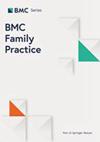提供方报告了华盛顿州消除丙型肝炎的实施障碍
IF 3.2
3区 医学
Q1 MEDICINE, GENERAL & INTERNAL
引用次数: 0
摘要
尽管自 2014 年以来就有了治疗方案,但在 2018 年,华盛顿州只有 12% 的确诊丙型肝炎(HCV)患者接受了治疗。华盛顿州各机构于 2019 年启动了一项消除计划,以促进 HCV 筛查和治疗的获取和提供。本研究的目的是评估服务提供者和卫生系统在华盛顿州成功实施 HCV 筛查和治疗的障碍。这是一项横断面在线调查,调查对象是 2022 年为华盛顿州成年患者提供医疗服务的 547 名医生、执业护士、医生助理和临床药剂师。在初级医疗、传染病、肠胃病或社区医疗机构工作的医疗人员均符合条件。调查问题包括丙型肝炎病毒筛查和治疗方法、实施障碍、提供者知识、观察到的耻辱感以及共同管理丙型肝炎病毒和药物使用障碍的意愿。通过卡方检验或菲舍尔精确检验比较了筛查和治疗者的特征。在全州范围内,医疗服务提供者采用 HCV 筛查的比例较高(96%),且发现的障碍极少。报告自己治疗 HCV 的医疗服务提供者较少(28%);大多数医疗服务提供者(71%)将病人转给其他医疗服务提供者。未治疗 HCV 的医疗服务提供者发现的障碍包括知识不足(64%)和缺乏组织支持(24%)。治疗 HCV 的患者发现最多的障碍是缺乏治疗的临床医生(18%)。很少(< 10%)有报告称在治疗 HCV 的过程中发现了耻辱感。大多数临床医生(95%)愿意为吸毒(包括酗酒)者开具药物治疗药物使用障碍的处方。尽管筛查工作广泛开展,但在华盛顿州开展 HCV 治疗仍存在障碍。缺乏治疗临床医生和临床医生知识不足是治疗 HCV 最常见的障碍。为实现到 2030 年消除 HCV 的目标,有必要培养和教育治疗 HCV 的临床医生队伍。本文章由计算机程序翻译,如有差异,请以英文原文为准。
Provider reported implementation barriers to hepatitis C elimination in Washington State
Despite curative treatment options since 2014, only 12% of individuals in Washington State diagnosed with Hepatitis C (HCV) received treatment in 2018. Washington State agencies launched an elimination plan in 2019 to promote access to and delivery of HCV screening and treatment. The purpose of this study is to evaluate provider and health system barriers to successful implementation of HCV screening and treatment across Washington State. This is a cross-sectional online survey of 547 physicians, nurse practitioners, physician assistants, and clinical pharmacists who provide care to adult patients in Washington State conducted in 2022. Providers were eligible if they worked in a primary care, infectious disease, gastroenterology, or community health settings. Questions assessed HCV screening and treating practices, implementation barriers, provider knowledge, observed stigma, and willingness to co-manage HCV and substance use disorder. Chi-squared or fishers exact tests compared characteristics of those who did and did not screen or treat. Provider adoption of screening for HCV was high across the state (96%), with minimal barriers identified. Fewer providers reported treating HCV themselves (28%); most (71%) referred their patients to another provider. Barriers identified by those not treating HCV included knowledge deficit (64%) and lack of organizational support (24%). The barrier most identified in those treating HCV was a lack of treating clinicians (18%). There were few (< 10%) reports of observed stigma in settings of HCV treatment. Most clinicians (95%) were willing to prescribe medication for substance use disorders to those that were using drugs including alcohol. Despite widespread screening efforts, there remain barriers to implementing HCV treatment in Washington State. Lack of treating clinicians and clinician knowledge deficit were the most frequently identified barriers to treating HCV. To achieve elimination of HCV by 2030, there is a need to grow and educate the clinician workforce treating HCV.
求助全文
通过发布文献求助,成功后即可免费获取论文全文。
去求助
来源期刊

BMC Family Practice
医学-医学:内科
CiteScore
3.20
自引率
0.00%
发文量
0
审稿时长
4-8 weeks
期刊介绍:
BMC Family Practice is an open access, peer-reviewed journal that considers articles on all aspects of primary health care research. The journal has a special focus on clinical decision making and management, continuing professional education, service utilization, needs and demand, and the organization and delivery of primary care and care in the community.
 求助内容:
求助内容: 应助结果提醒方式:
应助结果提醒方式:


